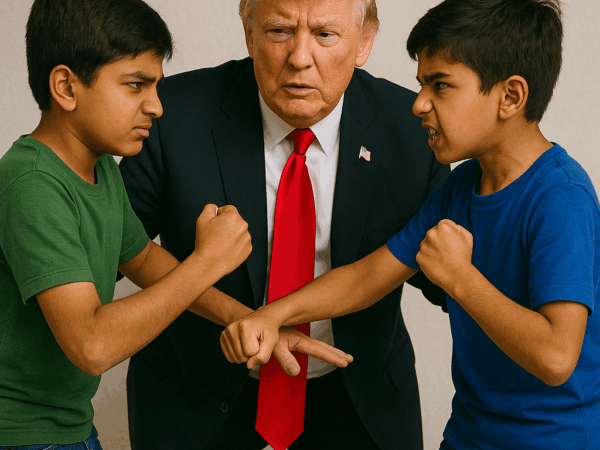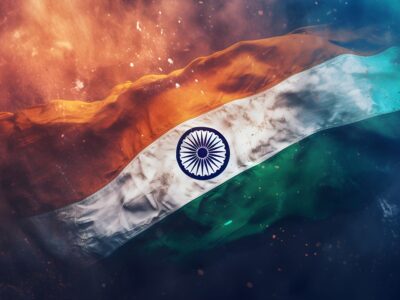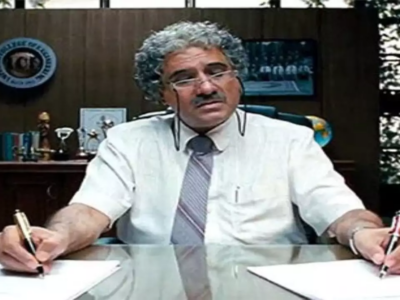 I have seen some debates online about what works for Covid and what does not. There are some studies that are ‘conclusive’ about the exact stuff many actual practising doctors are not yet convinced about from their own clinical experience. Pharmaceutical and vaccine companies claim one thing today, and another tomorrow. The evidence (and explanations) are evolving. Of course, I understand that science is messy and this is how it works, for work it does. But it goes through iterations and takes paths with dead-ends and sometimes needs miracles and accidents to show up something that clicks, though not one scientist true to their heart will say they depend on any of these. Science, most times, is a slow, painful, arduous, repetitive, even boring work, and it only gets press when something shiny falls out of the extremely difficult path it took to get there, all of which is then reserved for some book that no one reads, while the juicy bits are gobbled up by tabloid-buying and meme-making folks like you and me.
I have seen some debates online about what works for Covid and what does not. There are some studies that are ‘conclusive’ about the exact stuff many actual practising doctors are not yet convinced about from their own clinical experience. Pharmaceutical and vaccine companies claim one thing today, and another tomorrow. The evidence (and explanations) are evolving. Of course, I understand that science is messy and this is how it works, for work it does. But it goes through iterations and takes paths with dead-ends and sometimes needs miracles and accidents to show up something that clicks, though not one scientist true to their heart will say they depend on any of these. Science, most times, is a slow, painful, arduous, repetitive, even boring work, and it only gets press when something shiny falls out of the extremely difficult path it took to get there, all of which is then reserved for some book that no one reads, while the juicy bits are gobbled up by tabloid-buying and meme-making folks like you and me.
This brought up a memory.
Not very long ago (but long enough back for me to speak of it now), I prepared (on request of the potential user group) a presentation for a premier association of medical professionals to prepare a software program/app-as-a-service that will help them pool in their experiences and gather meta-data about their patients, enabling the first step towards evidence-based medicine. We called it CaseNotes. It went nowhere because the association (a not-for-profit organisation with surplus cash slightly above US$1 million that they claim is not profit; go figure) refused to pay us for it. Not because they didn’t think it was worth it. But because they saw it as a toy; something no one will use, but the association would be able to score some points on the claim that they have one. No one got that contract. Not us, not our competitors, not even those that had software ready to deploy. It just vanished. Like so many things such associations debate and keep debating until the entire point of the debate has been lost and no one knows what it is about anymore.
But that is not the problem.
Because it is not that there is a paucity of money, or that funding is not available for this sort of thing. I could very well raise the money required for this and there are probably other, far more qualified, and I daresay moneyed, actors in this space that have very complex and detailed tools ready to deploy. Indeed, I know of a few well-funded, popular apps myself (albeit with small defects that can easily be cured by better design and little more granularity).
In fact, it would not be wrong to say that much of these are not only used abroad in the First World nations, but they are also more or less compulsory, since they are tied to insurance and pharmaceutical dispensaries as well as government welfare programs and suchlike.
So, why don’t we have these kinds of systems in India? We don’t seem to care much about personal data or its security anyway (though most of these systems are robust in their ability to shield personally identifiable patient data), we aren’t exactly strangers to paperwork and bureaucratic red-tape, we understand the importance of evidence-based medicine and sharing of data that will only help both, practitioners and patients alike, we are all well-connected to the net and mobile all the time, and we are reasonably integrated into the international system of medicine to not see this as some sort of revolutionary leap we are incapable of taking or of handling. What then, is the issue?
Is it a paucity of vision? In a way, yes. The issue is that we lack a long-term view, a futuristic perspective, a plant-the-seed-for-the-fruit-to-be-enjoyed-by-our-grandchildren attitude.
Is it out antiquated laws that are still being written from a perspective of our erstwhile colonial masters where the presumption of guilty until proven innocent seems to be the base from which everything is structured? In some way, yes.
Is it the more recent movement (both socially and legislatvely) towards consumer protection that is yet to be understood by doctors that it is indeed for their benefit and not to penalise or demonise them and embroil them in frivolous lawsuits (mainly because lawsuits in India are so difficult to bring and so long to resolve and get a verdict on that it is ridiculous someone might either threaten someone with one, or the one so threatened might actually feel threatened and scared of the threat so issued), or is it because Indian doctors are simply not yet (at least the generation of doctors that are in senior positions today, and are the role models for the younger ones to imitate and emulate) sensitised to the fact that they are offering a service, and however noble that service is, it is, at the end of the day, at least in part, transactional in nature and depends on well-understood principles of give-and-take for it to be fair to both parties, especially with more educated, more aware, and more demanding patients and better-educated, better-armed (with the latest knowledge), and better-insured medical practitioners?
Is it our treatment of a person of medicine as some sort of God and our reverential attitude towards them? Yes. That too.
All of that. And our doctors’ massive, planet-sized egos.
I wish there was a better explanation as to why we in India do not have meta-data that every doctor can share of every condition and diagnosis, every surgery and procedure, every patient and outcome, with every other doctor, with patients, with the media, with the authorities, with the courts, with the legislators, with pharmacologists and pharmaceutical companies, with insurers and actuaries, and with researchers in any and all of these fields.
It will benefit everyone in the ecosystem. It will enhance medicine. It will advance science. It will improve outcomes. It will result in a healthier society. It will reduce pain (and I daresay deaths). It will create a shield for honest practitioners of their art. It will (if the correct technologies are used) build-in traceability for any litigants and defendants who may need to get to the truth. It will auto-generate a historical record. It will help in future research into diseases and pandemics not yet known. It will take humanity and our civilisation one more step towards a better life.
And that is why I believe that the government ought to intervene and make this happen. No amount of VC money thrown at this problem seems to incentivise doctors to take time to share, share in time, and share honestly. No amount of well-designed products and services seem to tempt them to create this network of knowledge that will help everything and everyone. And no amount of coddling and convincing seems to work in getting them to let go of their fears and egos to work together. The solution to this problem is not throwing more money at it, or better design, or more education, increased awareness, and heightened consciousness, though all of these are important. The solution to this problem seems to be legislation and coercion.
Just like Indians would, given half a chance, run a red light, not wear a helmet, cross the road when the signal says ‘Don’t Walk’, take a newspaper without leaving a coin, evade taxes, spit and urinate in the open, and break any law that is not backed up by a police danda (violence), challan (monetary fine), and a possibility of jail time (criminal penalty), we would not do something by ourselves even if it makes the world a safer, better, healthier place (and even if it is out literal oath that compels us to make it so) unless threatened with personal consequences for not doing so.
Unfortunately, this is fraught with two very specific dangers:
- Any such tool in the hands of a tyrannical government can and will be used against the very people it must protect and keep safe and healthy.
We are back to the colonial fashion of ruling where the only way to keep the ‘natives’ in line would be to make what seems prima-facie to be a coercive law (that none of those who need to follow it is in favour of) with as few loopholes as possible (but using long-winded and complicated language, and giving vast discretionary powers to the local authority) and punish those that are not compliant. - However, there is also another way to make this happen: The pharmaceutical and insurance industry gets together and finds a way to force the doctors and hospitals (via legislation, of course, which would involve massive amounts of lobbying and spending money, as it goes without saying) into sharing this data with them to help them make better decisions (aka more profitable ones). The trouble with this is that the real beneficiaries of such a system, were it to come to fruition: doctors, academics, researchers, patients (and their relatives) will be left high & dry, with no or severely limited access to their data. That is not, as you can imagine, an ideal situation. But at least that’d be a start.
What then, do you think, is the ideal resolution to this grave problem?
P.S: Please do not tell me about some systems you have seen work in India, where hospitals and doctors fill in some form which is then sent back to a central place to be collated and presented in some conference. I have seen those systems in action and none of them describe what could remotely be held as a ‘scientific’ process of gathering data and making it available for practitioners to access evidence to base their decisions on in a day-to-day setting.


















